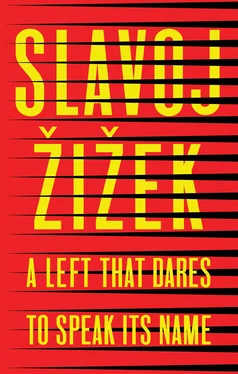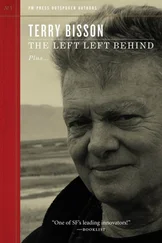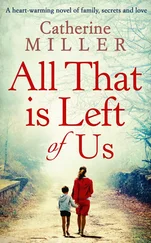the hate they [the immigrants] are subjected to as well as the necessity of humanitarian pity in order to avoid the only logical consequence that western political systems should draw explicitly, if they were to accept their own real structure: the physical elimination of immigrants. As a middle term between verbal pity and factual cruelty, the honorable souls have discovered the virtues of segregation. Since the beginning of 1970s, Lacan considered segregation as the social fact par excellence, racism being but a subcase of that general process. 4
How do these wandering intruders relate to proletarians? In some Leftist circles, the exploding growth of homeless refugees gave rise to the notion of the “nomadic proletarian.” The basic idea is that, in today’s global world, the main antagonism (the “primary contradiction”) is no longer between the capitalist ruling class and the proletariat, but between those who are safe beneath the cupola of a “civilized” world (with public order, basic rights, etc.) and those who are excluded, reduced to a bare life. “Nomadic proletarians” are not simply outside the cupola but somewhere in between: their premod-ern substantial life-form is already in ruins, devastated by the impact of global capitalism, but they are not integrated into the cupola of the global order, so they roam in an in-between netherworld. They are not proletarians in the strict Marxian sense; paradoxically, when they enter the cupola of developed countries, the ideal of most of them is precisely to become “normal” exploited proletarians. Recently, a refugee from Salvador who tried to enter the US on the Mexico–US border said to the TV cameras: “Please, Mr. Trump, let us in, we just want to be good hard workers in your country.”
Can the distinction between proletarians proper (exploited workers) and the nomadic (less than) proletarians be somehow blurred in a new more encompassing category of today’s proletarians? From the strict Marxian standpoint, the answer is a resounding NO: for Marx, proletarians are not only “the poor” but those who are, by way of their role in the production process, reduced to subjectivity deprived of all substantial content; as such, they are also disciplined by the production process to become bearers of their future power (the “dictatorship of the proletariat”). Those who are outside the production process – and thereby outside a place in social totality – are treated by Marx as “lumpenproletarians,” and he doesn’t see in them any emancipatory potential; rather, he treats them with great suspicion, as the force that is, as a rule, mobilized and corrupted by reactionary forces (like Napoleon III.).
Things got complicated with the victory of the October Revolution, when Bolsheviks exerted power in a country where not only the large majority of the population were small farmers (and Bolsheviks gained power precisely by promising them land), but where, as the result of violent upheavals during the civil war, millions of people found themselves in the position not of classic lumpenproletarians, but of homeless nomads who were not yet proletarians (reduced to the “nothing” of their working force) but literally less-than-proletarians (less-than-nothing). Their massive presence is the central topic of the work of Andrei Platonov, who described in detail their way of life, elaborating a unique “materialist ontology of poor life.” 5From the standpoint of the “ontology of poor life,” the parallel between Samuel Beckett and Platonov is fully relevant: is the experience of a “poor life” also not the core of Beckett’s great trilogy of novels Molloy, Malone Dies, The Unnamable? The entire topic, as well as the details of Malone Dies, clearly relate to the French péripéties during the German occupation and its aftermath: Nazi and collaborationist control, terror and oppression, the revenge against collaborationists, and the way refugees were treated when returning home and recuperating. What gives such power to the novel is precisely that these three domains are condensed into a single suffocating experience of a displaced homeless individual, an individual lost in the web of police, psychiatric, and administrative measures.
The difference between Platonov and Beckett is that, while Beckett renders the experience of homeless refugees as individuals at the mercy of state institutions, Platonov focuses on displaced nomadic groups in a post-revolutionary situation when the new communist power tries to mobilize them for the communist struggle. Each of his works “departs from the same political problem of how to build communism: of what communism means and how the communist idea meets the concrete conditions and reality of the post-revolutionary society.” Platonov’s answer to this problem is paradoxical, far from the usual dissident rejection of communism. His result is a negative one; all his stories are stories of a failure; the “synthesis” between the communist project and the displaced nomadic groups end in a void; there is no unity between proletarians and less-than-proletarians:
In Chevengur (1926–28), the orphan Sasha Dvanov becomes a communist in the year of the revolution, joins the Bolsheviks and goes on a party errand to support the revolution in a village. During his long journey, Dvanov discovers “communism in one village,” established by poor peasants. The communism of the Chevengur village is accompanied by various absurd experiments with urban planning and farming, permanent terror and hunger. The wandering organic intellectuals are a supplement to the wandering masses, classes and communities, and they are all accompanied in their migration by animals, plants and natural landscape. The protagonist of Dzhan [1936; in English, “Soul”], Nazar Chagataev, returns to his native town in Turkestan on a party errand to find the lost nomadic nation Dzhan, from which he had come, in order to establish a socialist order. Dzhan was written after Platonov’s two journeys in Turkestan as a member of writers’ delegations. This was during the period when the civil war in Turkestan had just ended and a campaign against traditional nomadic forms of life had been initiated. The task of the delegation was to write an orthodox socialist realist story about a successful “civilizing” process in the local communities. The central problem of Platonov’s Dzhan may seem to conform to this brief, narrating as it does the story of a “Red Moses” leading the nomadic inhabitants of the Asian desert to socialism. However, Chagataev goes back to Moscow when his mission has ended and one is left with doubts about the future of communism in the desert…. The most famous work of Platonov, The Foundation Pit (1930), was also created in the context of the first five-year plan. It unfolds by way of a series of meetings between the protagonist Voshchev and the residents of a small provincial town, who are involved in the construction of an enormous proletarian house. While Voshchev challenges the representatives of different class groups, engaging in a Socratic inquiry into truth, the project acquires a more and more grandiose plan, before finally coming to an end with no result.
But we are at the same time as far as possible from the old conservative liberal critique of revolution as a violent attempt to impose on actual life models that are foreign to it. First, Platonov articulates his despair from the position of an engaged fighter for communism (he was actively engaged with nomadic groups in the 1920s, also at a very practical technical level, planning and organizing irrigation projects, etc.). Second, Platonov is not depicting a conflict between the traditional texture of social life and the radical revolutionary attempt to change it (in the style of Edmund Burke’s critique of the French Revolution): his focus is not on the traditional forms of life but on the dispossessed nomads whose lives were already irretrievably ruined by the process of modernization. In short, the radical cut Platonov depicts is not between the “spontaneous” proletarian crowd and the organized communist forces, but between the two aspects of the proletarian crowd itself, between the two social “nothings”: the strictly proletarian “nothing” of the modern workers generated by capitalism, and the “less-than-nothing” of those not integrated into the system, not even as its immanent negativity, as is made clear in this short exchange from Chevengur: “‘Who did you bring us?’ Chepurny asked Prokofy … ‘That’s proletarians and others,’ Prokofy said. Chepurny was disturbed ‘What others? Again the layer of residual swine?’ … ‘The others are the others. Nobody. They’re even worse than the proletariat.’” Here are some passages that describe these social “less-than nothings”:
Читать дальше












